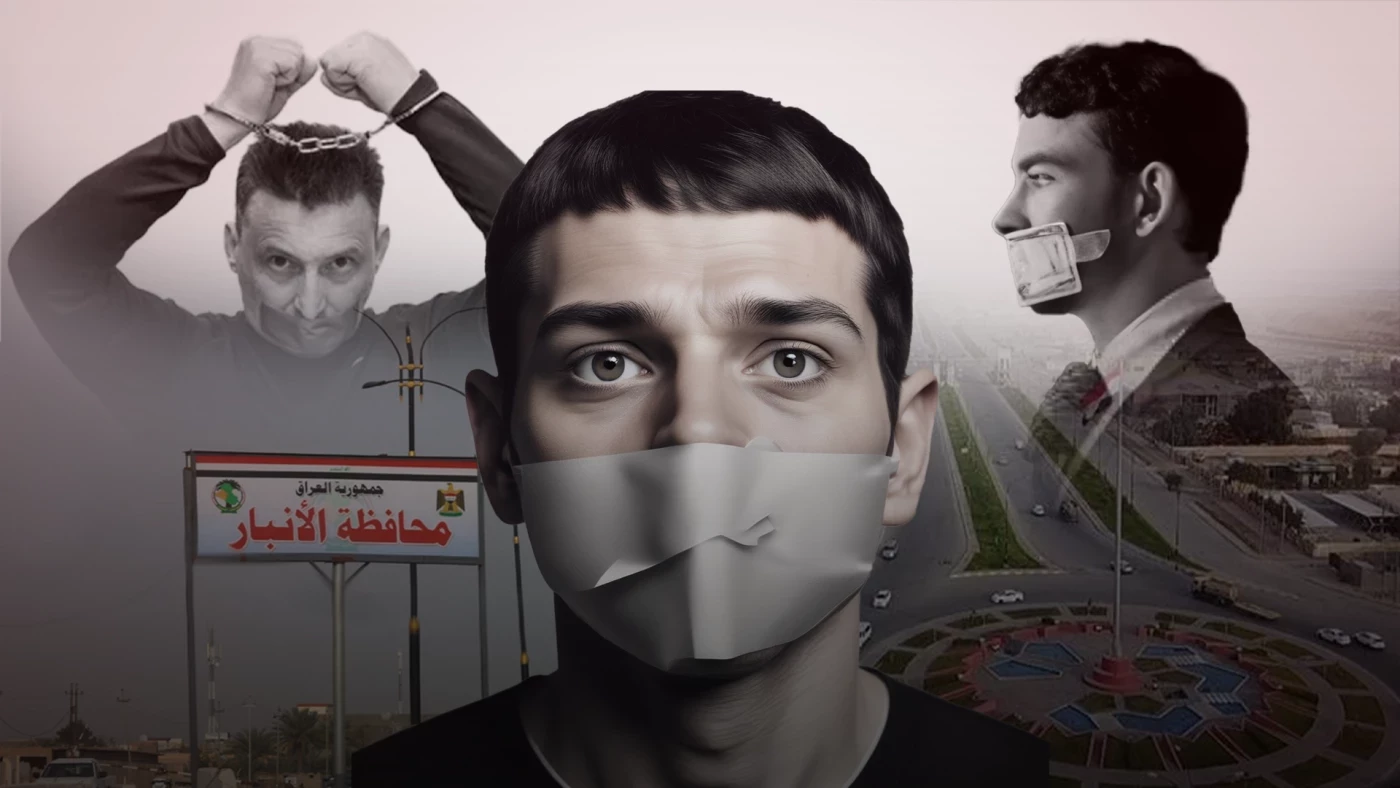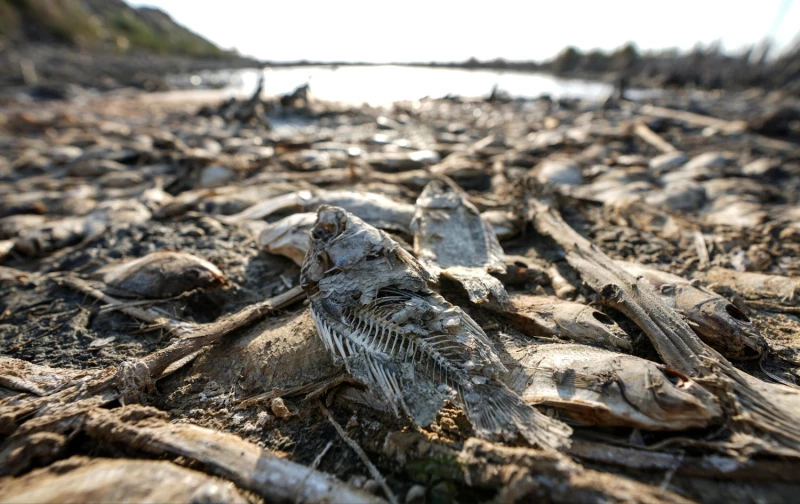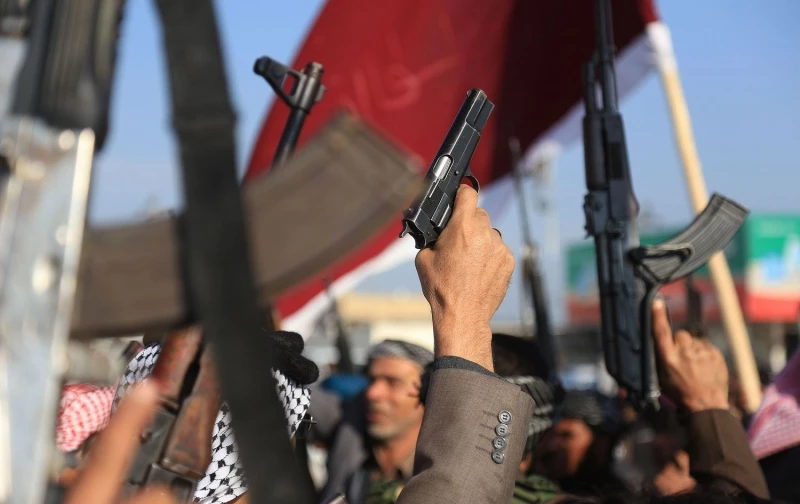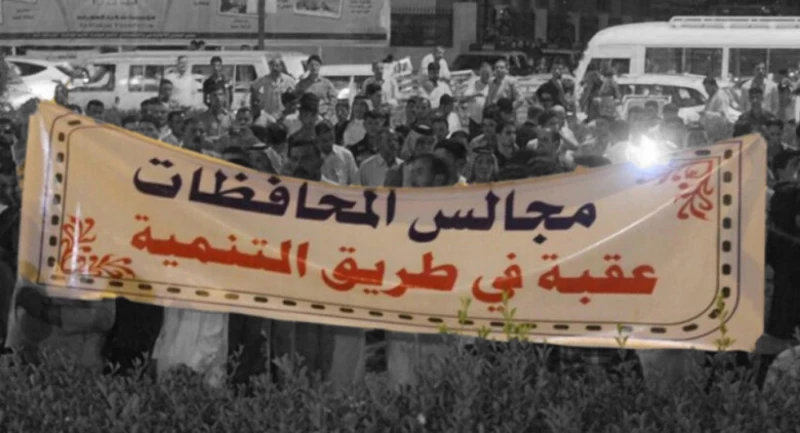ERBIL, Kurdistan Region of Iraq - Iraq's Anbar province, once a battleground against extremist groups and war, is now facing a different kind of struggle, one for free speech.
After years of violence and political changes, Anbar was liberated from ISIS in 2017. But local activists, employees, and political voices now say they are being silenced. Critics of the ruling Taqaddum party in Anbar, led by former Parliament Speaker Mohammed al-Halbousi, report arrests, job transfers, and threats, for speaking out against the party and its leadership.
Crackdowns and forced transfers
In recent months, cities in Anbar have seen growing pressure on activists and bloggers. Some have been arrested for criticizing local politicians, raising alarms among Iraqi human rights groups.
According to unofficial data obtained by The New Region, 13 activists were arrested in 2024 for criticizing al-Halbousi or his party. Another 43 government workers were transferred to distant or remote areas, some near the borders. The reason? Sharing posts or comments against the party or local government on social media.
In early 2025 alone, 28 more workers were transferred after attending political events or sharing opinions online.
Political activist Abdullah al-Thaban said Anbar has faced heavy pressure since 2019. “It used to be lawsuits and arrests. Now they punish you by transferring you if you speak out,” he said.
He added, “Employees are moved just for sharing opinions online or working with other political groups. This has gotten worse as elections get closer.”
Thaban said these acts are clear violations of free speech and political rights. “What’s most painful,” he added, “is the silence from the national government, which seems like political favoritism.”
Elections bring more pressure, tribal leaders targeted
Just days ago, the Anbar governor’s office issued an order transferring Sheikh Arkan Khalaf al-Tarmouz, a well-known tribal leader, along with eight family members, to a small town called Al-Wafa. The reason? He joined the upcoming elections as a candidate for the Azm coalition, which opposes Taqaddum.
Political analyst Muhannad al-Rawi said political tensions rise during every election in Anbar, but this time is different.
“This is not just competition. The ruling party is using its power to remove its rivals,” al-Rawi told The New Region. “They’re building a new kind of dictatorship.”
He added that Taqaddum once used police and security forces to target critics. “Now they’re using administrative tools, transferring employees, cutting salaries, and punishing workers who disagree.”
Anbar is largely a tribal society, he noted. “If this continues without legal or government action, it could lead to unrest,” Rawi warned. “We need the prime minister and the Supreme Judicial Council to step in.”
He also shared a story of a blind war veteran who lost his vision fighting ISIS. That man had his social welfare payments cut off after posting something critical on social media.
“This reminds people of the old Ba’ath Party era,” Rawi said. “It’s about spying on WhatsApp groups, writing reports, and punishing people. It’s not just illegal; it’s immoral and dangerous.”
Major land scandal and corruption
In recent years, Iraq’s Integrity Commission revealed a massive corruption case in Anbar. Investigators found 150,000 plots of state-owned land had been sold or distributed illegally.
Police from Baghdad later arrested multiple employees from municipal, tax, and land offices for being involved in the scheme.
Anbar’s government is currently run by Taqaddum, which won a majority in the last provincial elections.
A new dictatorship
Hamid al-Hayes, the head of the Anbar Salvation Council, said it’s now impossible for any journalist, activist, or government worker to speak freely.
“Taqaddum makes it look like Anbar is full of towers and modern roads,” Hayes told The New Region. “But the truth is, we’re dealing with poor services, high unemployment, and extreme corruption.”
He added that Anbar is “one of the most corrupt areas,” especially in land, compensation, and pension files. “Anyone who speaks up is punished, arrested, transferred, demoted, or even fired.”
Hayes criticized the national government for ignoring these actions. “They’re giving Halbousi and his party a free pass,” he said. “This needs to stop. The courts and human rights groups must protect citizens’ dignity.”
Media silence and online surveillance
Abdullah al-Fahad, a member of Anbar’s protest movement, believes the province is slipping into a "new dictatorship." He says the pressure campaign includes not only politicians but also security forces, tribes, and media.
“There’s an organized system for watching activists, and sadly, most media outlets won’t talk about it,” he told The New Region. “They show Anbar like it’s a new Dubai. But that’s not the truth.”
Fahad said groups of people are assigned to monitor Facebook and WhatsApp, and report anything critical of the ruling party.
“One man was transferred from Ramadi to Rutba, 300 kilometers away, just for reacting with a smiley emoji in a WhatsApp group,” he said.
He concluded, “We’ve sent reports to human rights groups. We’ve pleaded for help. But the Iraqi government just watches. Political deals are more important than the suffering of Anbar’s youth.”


 Facebook
Facebook
 LinkedIn
LinkedIn
 Telegram
Telegram
 X
X



